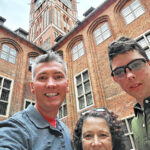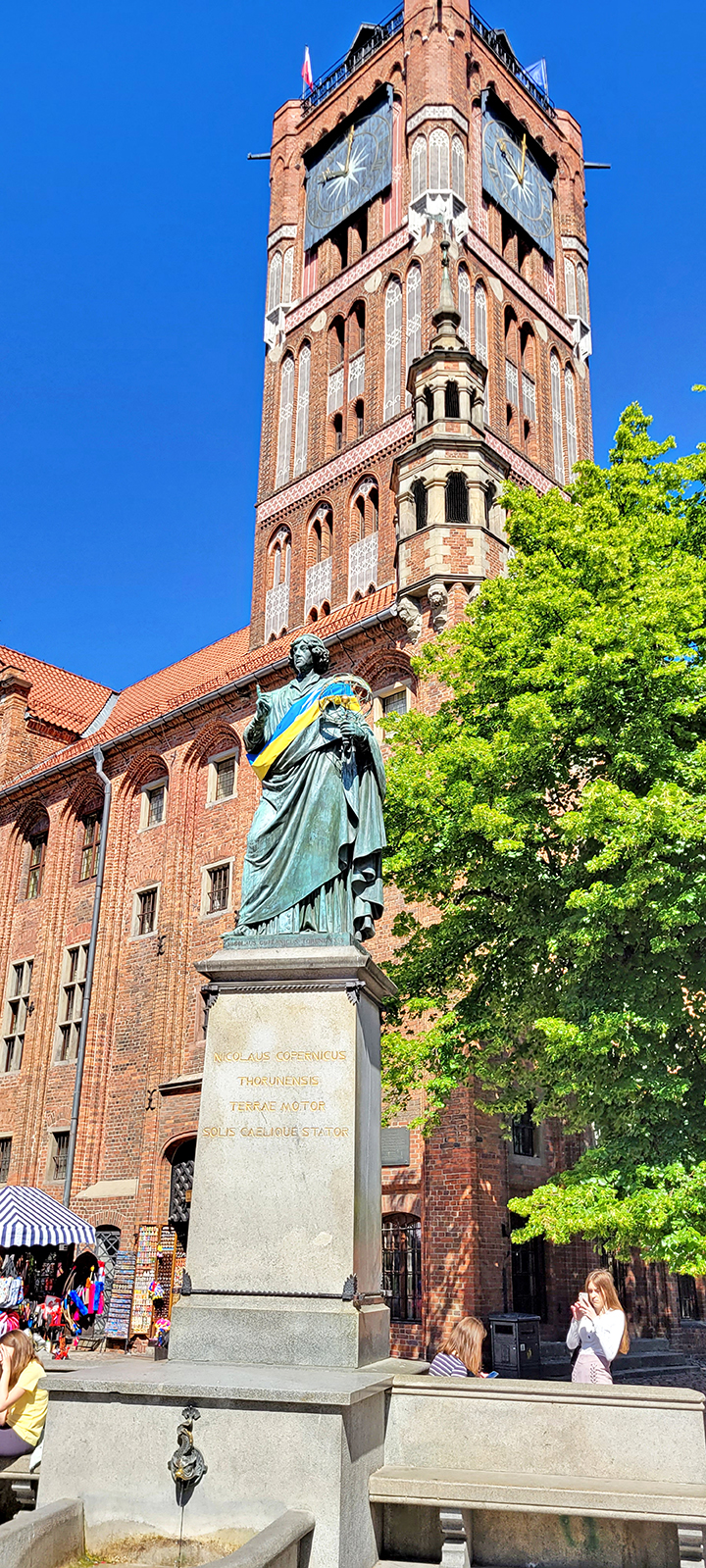Jarek Krych has lived in the United States for almost 20 years and Manitou Springs for about 10 years, but his homeland of Poland still calls to him. He and his wife, Christina, and their son, Adam, go there every summer to see family, enjoy the culture and ride bicycles in the countryside.
But this is no ordinary summer in Poland.
When Krych emailed the Bulletin at the end of June, the situation was calm. They encountered many Ukrainian refugees — mostly women with children — on the streets.
He spoke to two women and their boys from Kharkiv, which is still under Russian attack.
“They were kind to talk to, and very friendly. I still see the kid’s smiley face. I told them I was glad they could be in Poland safe at least,” Krych said.
They were leaving a few days later to live in Lviv, Ukraine; they can’t go back to Kharkiv.
“You can see they want to get closer to their home. What brave and courageous people are Ukrainians,” Krych said.
He’s learned of many instances of Polish people’s desire to help Ukrainians.
One of his former teachers and her husband are offering their Warsaw apartment to a Ukrainian mother and child at no cost.
His father, a cycling coach, and his club accepted four female Ukrainian athletes, helped them find accommodation and take them to races so they can represent their country, continue to train and “have a chance in life.”
The elementary school Krych attended accepted eight young Ukrainian children to continue their education.
He’s heard stories of people driving their vehicles to the Ukrainian border as the war began to help people reach safety.
“Since Feb. 24, 2022, a total of 4.37 million refugees from Ukraine have crossed the Polish border, with the largest number on March 6 — more than 142,000 people.
“How can anyone handle anything like this? Yet, it can be done. Many people in Poland are willing to sacrifice their comfort, space and resources for a good cause.”

The Kryches took trains from their home base, Torún, where Jarek was born, to Krakow and Warsaw, and saw help centers at all major train stations. They’re decorated with Ukrainian flags and display signs in Ukrainian and Russian.
The Polish government is offering healthcare assistance and work permits for up to three years.
Part of the reason for this open-hearted, selfless compassion might be that Poland has been overrun by invaders countless times in the past. But that’s not all.
“I believe another reason people here are eager to help is driven by a natural human response. Desire to do something, to help another person, especially in a dire situation like war,” Krych said.
“People look after each other here in Poland. Poles have this ability to come together when faced with a challenge, national security threat or unjust suffering of other people.”
He thinks that his compatriots are like Americans in many ways: They believe in freedom and will fight for it. They believe in the American dream of working hard to attain prosperity and want that for Poland. And they want Ukraine to be free.
“How could we not help them? How could we not help to end the suffering of the innocent people?” Krych asked.
He’s also proud of what American soldiers, part of NATO forces, are doing in Poland to help Ukrainians. He even met a soldier from Fort Carson.
“What people are doing in Poland restores the hope in humanity. On one hand, we witness overpowering human tragedy, inflicted by other humans.
“On the other hand, you see acts of bravery, kindness, love, decisiveness and ability to unite in the face of life-and-death situations.”

